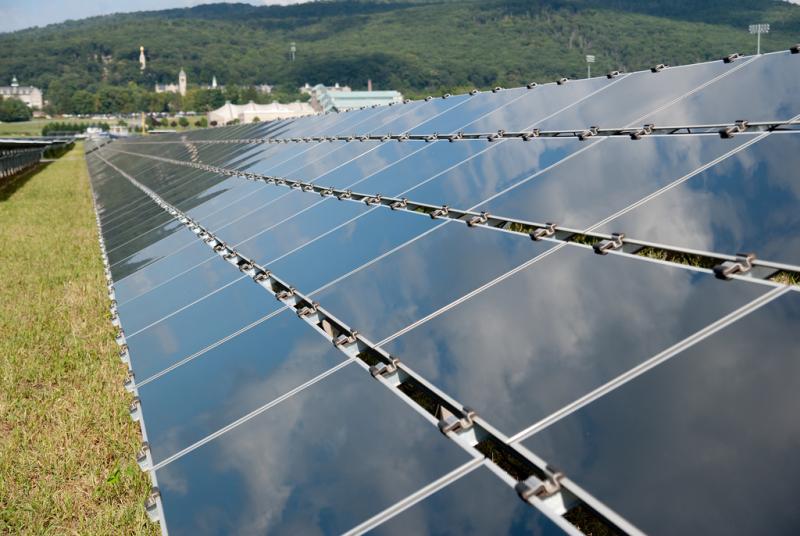Marion voters to debate roads, solar at Town Meeting
There are 37 articles on the Marion Town Meeting warrant, and two of them have sparked considerable debate in the months leading up to the May 13 meeting.
One article would establish two solar bylaws, the other is a request for funds to overhaul streets, sewers and drainage pipes in Marion Village. Voters will weigh in at the meeting scheduled for 6:45 p.m. at Sippican School.
Votes on equipment purchases, dock improvements at Old Landing, and some financial housekeeping will also take place.
The construction article, a $3.1 million plan to begin repairs on the roads and drainage systems on Ryder Lane, South Street and Spring Street, is a necessary expenditure, Marion Town Administrator Paul Dawson said.
The last few years have already brought Village infrastructure upgrades. The drainage system is the town’s next target.
“We need to make stormwater improvements. The system is one hundred years old, it is outdated, dilapidated and not adequately sized,” Dawson said.
If funded, the plan- – drafted by engineers from Camp, Dresser, McKee, and Smith – includes street repairs that would bring sidewalks into compliance with the Americans with Disabilities Act.
“The roads are in deplorable condition,” Dawson noted. Timing street repair to follow drainage improvements is fiscally sound, Dawson said.
“It doesn’t make sense to fix the roads and then make those drainage repairs two to three years later,” he said. Town leaders have worked to develop a long-range plan for the project, he said.
If approved, the Village plan (known as Phase 1A) would be the start of additional repairs to take place over 10 years at an estimated cost of $18.4 million. Phase 1A is scheduled to occur over an 18-month period.
Project funds would be taken from Marion’s Sewer Enterprise Account and Water Enterprise Account.
Funding the project concerned residents, who will see an increase in the sewer rate. Project engineers told residents not to expect changes in the water or tax rate.
The solar bylaws aren’t saddled with the large price tag of the drainage repairs, but are proving to be contentious.
The Marion Energy Management Committee drafted and defended bylaws governing the installation of solar panels. Following a series of public hearings, members of the Planning Board voted to not support the new rules.
Instead, board members said more time was needed to refine the bylaws, proposing to readdress the matter at Fall Town Meeting.
The laws lack, board members said, protections for property owners, such as not requiring commercial solar projects developers to obtain special permits. A provision permitting ground-mounted systems measuring 600 square feet or less in residentially zoned areas faced opposition as well.
Towns can’t prevent solar arrays from being built, Dawson said, adding the bylaw made sense.
“This is a good solid bylaw that addresses a need in town. As a function of state law, you can’t exclude solar arrays from happening,” he said. “You can place reasonable regulations on them.” Writing the bylaws was a municipal effort to do just that, he said. Locally, there are plans to place an array atop the town’s capped landfill, Dawson noted.
Solar proponents have said the bylaws provide guidelines for placing the arrays in town. Opponents took issue with changing the Benson Brook Landfill zoning from residential to “by right.” The change would eliminate the need for a site plan review process with the Planning Board.
In addition to those articles, residents will be asked to vote on the more routine business of Town Meeting, including approving or denying a number of capital requests. Voters will decide whether or not to take out $595,000 in bonds to buy a new pumper engine for the fire department. Also, $7,500 was requested for three thermal imaging cameras and a telephone system upgrade.















